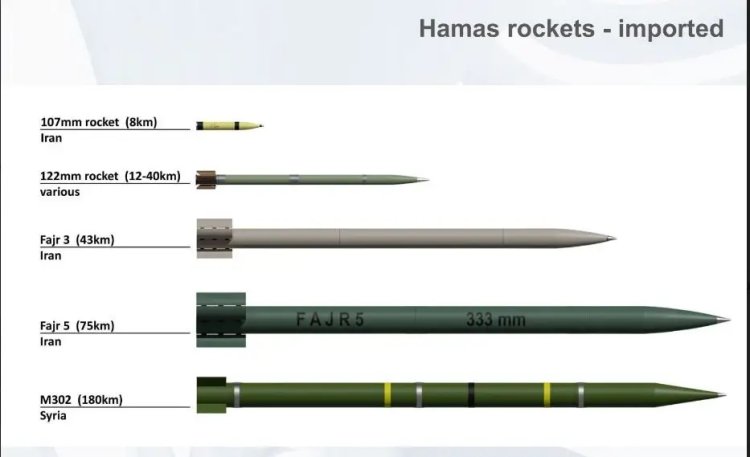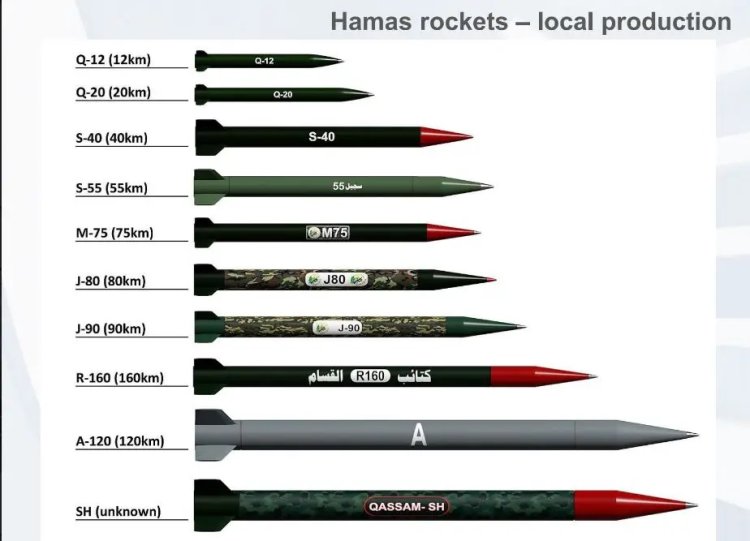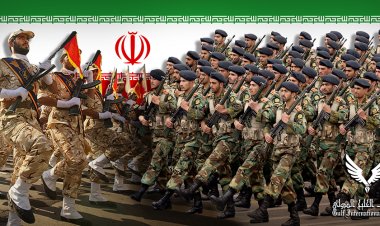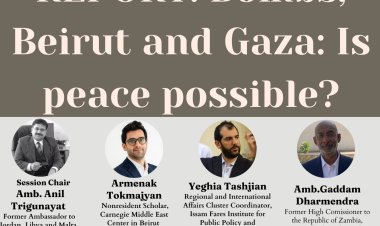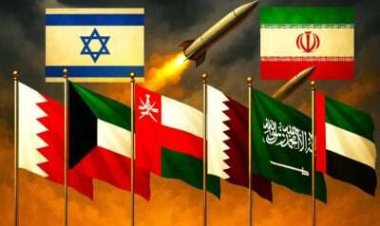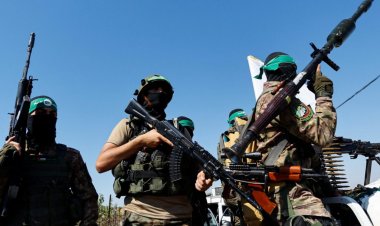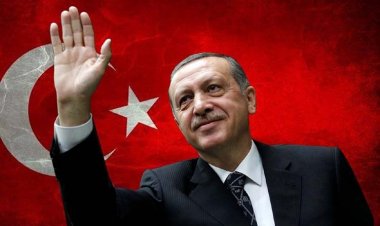Hamas Profiling and Hamas- Israel Conflict 2023
The explainer discusses the profiling of Hamas, a Palestinian terrorist organization that launched an unprecedented attack on Israel, with its fighters entering communities near the Gaza Strip, killing hundreds of residents and taking dozens of hostages on 8th October 2023. Hamas has termed the "Operation Al-Aqsa Flood" as the beginning of the end of the Israeli Occupation of Jerusalem
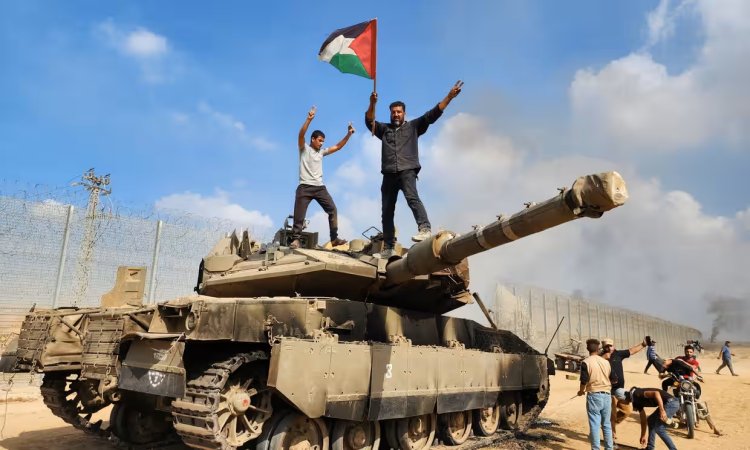
Explainer
Compiled By Preeti Khenta
Written By Abhishek Dey, Nikita Anand
Introduction
Hamas (“Harakat Al- Muqawama Al- Islamia") is a Palestinian Islamist fundamentalist organization, best known for its armed resistance to Israel. It was formed in 1987, followed by the outbreak of the first intifada by Sheikh Ahmed Yassin, a Palestinian cleric who became an activist in local branches of the Muslim Brotherhood after dedicating his early life to Islamic scholarship in Cairo. Hamas governs more than two million Palestinians in the Gaza Strip. Its rival party, Fatah, which dominates the Palestine Liberation Organization (PLO) and rules in the West Bank, has renounced violence. The split in Palestinian leadership and Hamas’s unwavering hostility toward Israel have diminished prospects for stability in Gaza.
It has outgrown as a Palestinian brand of Muslim brotherhood. To achieve the goal of an Islamic Palestinian state in place of Israel, it pursues a variety of aspects, such as firing rockets in Israel, infiltration in Israel and killing civilians, explosive charges against IDF, kidnappings, and Suicide bombings.
Organizational Structure and its Leadership
In 1988, Hamas published its charter, calling for the destruction of Israel and the establishment of an Islamic society in historic Palestine. Hamas group has a consultative body called Politburo which operates in exile and local communities manage the grassroots issues in Gaza and West Bank. The head of the Hamas organisation is Ismail Abdel Salam Ahmed Haniyeh. Hamas's wing in Lebanon is purportedly led by Saleh al-Arouri. Following internal elections that ended in 2021, he also assumed control of the organization's West Bank leadership, while Meshaal was picked to command the diaspora office, and Salameh Katawi was elected to oversee the issues of Hamas prisoners. Most of its top leaders operated from Qatar and Turkey after falling out with their previous host Syria when Palestinian refugees participated in the 2011 uprising that led to the Syrian Civil War. Esmael Haniya was elected by the Shura Council in 2017 to head the politburo. The Bureau has several units including propaganda, foreign affairs, and social welfare departments. The Shura Council (Majlis Al-Shura) is primarily responsible for decision-making. It oversees Hamas’s activities and has representatives from the Gaza Strip, the West Bank, Israeli prisons, and Hamas’s leadership abroad. The council is rather secretive and includes respected religious figures. Under the Council, smaller Shura committees are employed to oversee various activities, including military operations and media relations.
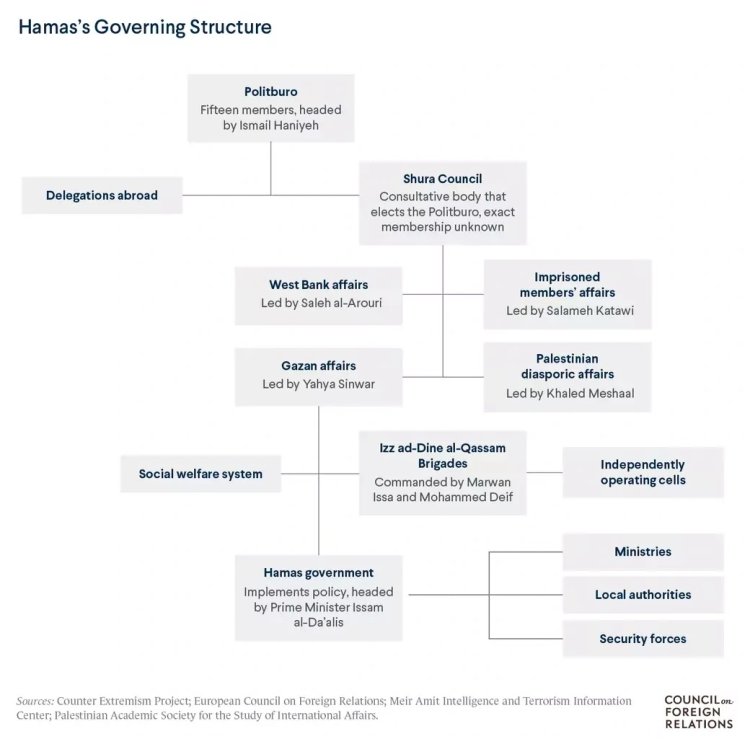
Figure I - Hamas Organisation Structure
Military Wing: Izz Al-Din Al-Qassam Brigades
The Qassam brigades were named after a Syrian fighter killed by the British in 1935, the main goal of the brigades was to liberate Palestine and oppose Israel’s existence in any form. To achieve this goal, they resort to escalation of the armed struggle, and ultimately jihad, with the participation not only of Palestinian Muslims but of the entire Islamic world.
Recruitment
The Hamas recruitment has been done through the Media and mobilized masses through "resistant media". Its support base includes all members of the Palestinian society. Some reports suggest that the group has even recruited minors, including children under 15 years old.
Furthermore, Hamas has a large number of passive supporters abroad, among Palestinian diaspora and non-Palestinians who helped the organisation in providing legitimacy and funding.
It uses Charities, mosques, dawa (preaching) centers student unions and other Hamas-run organizations to recruit new members through its preaching department. The recruitment usually includes a period of indoctrination, including historic education about Palestine and the occupation. Many of these candidates are recruited when experiencing certain life difficulties. The Hamas recruiters talk to them about the afterlife and try to sell the idea that paradise awaits them if they provide their dues in Jihad.
Hamas actively seeks to recruit Israeli Arabs for intelligence gathering. In February 2021, the Shin Bet arrested an Israeli-Arab who was “activated by the Hamas military wing in the Gaza Strip” to gather intelligence about the location of Iron Dome air defense batteries in Israel.
Hamas Funding
|
Aspect |
Details |
|
Primary Financier |
Iran (70% of total funding) |
|
Donation Channels |
Palestinian diaspora and ideological non-Palestinians |
|
Fundraising Locations |
Gulf countries, Western Europe, North America |
|
Challenges |
Designation as a terrorist entity, financial restrictions |
|
Comparative Financing |
Hezbollah has a more intricate fundraising system |
|
Recent Developments |
Rocket attack on Israel in 2021, US humanitarian aid |
|
Geopolitical Repercussions |
Diplomatic tensions and realignments |
Table: Information collected from Co-Operation of WorldWide Broadcast
Hamas is financed by Iran and also equips it with military aid and training. Currently, Iran provides $100 million annually. However, US sanctions imposed after withdrawal from the 2018 nuclear deal have constrained Iran to fund Hamas.
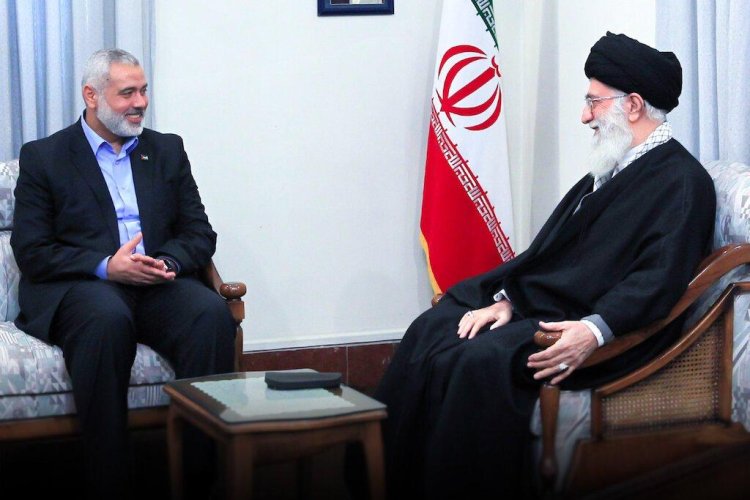
Figure III - Ismail Haniyeh, Hamas Leader with Iran's Supreme Leader Ayotollah Ali Khamenei
Turkey also funds Hamas’s terrorism through aid diverted from the Turkish Cooperation and Coordination Agency. Hamas has extended its fundraising roots to the Gulf countries, Western Europe, and even North America. While the Gulf countries once offered fertile ground for such activities, recent counter-terrorism initiatives have made the task arduous. Simultaneously, the Western world’s increasing vigilance has also curbed Hamas’s fund collection activities.
They also rely on international aid, Qatar hundreds of millions in assistance. After the blockade by Egypt and Israel in 2006-07, Hamas collected revenue by taxing goods moving through a sophisticated network of tunnels that circumvented the Egyptian crossing into Gaza. Egypt began to allow some commercial goods to enter Gaza through its Salah al-Din border crossing in 2018. As of 2021, Hamas reportedly collected upward of $12 million per month from taxes on Egyptian goods imported into Gaza.
Attacks by Hamas
They have conducted various anti-Israel attacks since 1990s. Hamas won elections in 2006 in the Palestinian territories ending the rule of secular Fatah’s leadership. In 2008, Hamas continued with rocket attacks killing several citizens. Israel declared a ceasefire in 2009 after destroying much of the Hamas infrastructure in Gaza. In 2014, the uneasy calm between Hamas and Israel broke down with rocket attacks by Hamas military and other Palestinian militants which resulted into the most lethal conflict with Israel since 2009. Hamas governs according to the Sharia-based basic law, with more restrictions by enforcing gender segregation in public and deciding women's dressing styles, with no transparency on its work. Hamas and Israel entered into the deadliest conflict in 2021 when Hamas fired rockets into Israel in Jerusalem after which Hamas won huge support as a champion of the Palestinian movement. While the US, Russia, UN, and EU contend that any Palestinian administration that includes Hamas can only obtain international recognition and assistance if the group recognizes Israel, renounces violence, and acknowledges the PLO's agreements with Israel that have been inked.
|
|
|
Figure II - Rockets use by Hamas against Israel
Operation Al-Aqsa Flood: October 2023
Moving forward to October 2023, Hamas has launched Operation ‘Al-Aqsa Flood’ one of the biggest attacks on Israel since the 11-day war in 2021. The Palestinian group started the operation in the early morning of 7th October, with the first rockets being launched at around 6:30 a.m. local time (03:30 GMT). The militants have fired thousands of rockets and sent dozens of fighters into Israel through land, sea, and air using paragliders. The invasion occurs on the joyous day of Simchat Torah when Jews complete their annual cycle of Torah scroll reading. Additionally, it brings up the bitter memories of the 1973 Yom Kippur War, which took place almost exactly 50 years ago and saw Israel's adversaries attack during Yom Kippur, the holiest day of the Jewish calendar.
There have been reports that Hamas fighters are attacking Israeli communities near the Gaza border and have been killing and abducting soldiers as well as civilians, while rockets have reached as far North as Tel Aviv. In response, the Israeli army has initiated ‘Operation Iron Sword’ against Hamas with air strikes in the Gaza Strip. President Benjamin Netanyahu in a television address declared mass army mobilization and termed the situation as ‘War’.
Hamas has claimed that the reason behind the attack is to stop the atrocities in Gaza against Palestinian people and to end the desecration of the Al Aqsa Mosque. The militant group has asked all the resistance groups in the West Bank and other Arab countries to join the fight. Along with Hamas, Palestinian Islamic Jihad has also partaken in the assault.
The international community across the board has condemned the attack, denouncing the bombing, and ground attack, with some western states calling the incursion a terror attack. While most countries have called for restraint from both sides, Israel’s adversaries have welcomed the attack, notably Iran and Hezbollah.
Disclaimer: This paper is the author's individual scholastic contribution and does not necessarily reflect the organization's viewpoint.
Abhishek Dey is currently pursuing Master's in Diplomacy, Law and Business from OP Jindal Global University. His interest includes foreign policy and international economics.
Nikita Anand is currently pursuing Masters in Diplomacy, Law and Business from OP Jindal Global University. Her interest includes Foreign policy and Public Policy.

